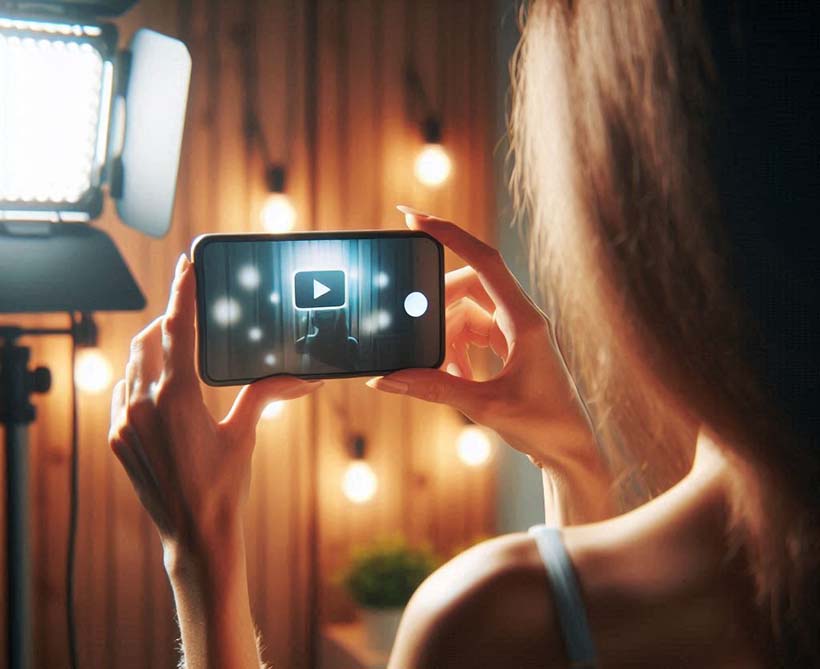Does it ever occur to you why the patterns, frequencies, and durations of day-to-day communication in humankind have changed to no reverse? If you own a smartphone and use Mark Zuckerberg’s brainchildren instead of pigeon post, you suddenly and suspiciously enough know everything about everyone, sometimes even in unnecessary details.
An abyss of no end: The friendly tool we call “social media”
One instant your friend, who you have not spoken to in years, is married, and the other your cousin is at a boogie restaurant with over twelve tags of strangers on her story. It took you roughly 8 seconds to read this sentence and only two clicks to learn the information I just so single-handedly fed you. Life, all lives, mine and yours included, has become a speedrunning competition. And it goes without saying that this entire pretty-customized notion of social media is, in fact, a brilliant tool in the hands of someone who means no harm. Connecting, self-educating, updating, and being updated ourselves has never been faster, and oh boy are we absolutely consuming it. You too believe you are not addicted? Let’s paraphrase our facts and figures.
According to the Datareportal 2024 April’s total overview, more than half the international population uses social media (62.6%), which is, simply put, roughly 5.07 billion people roaming around the internet. Within 2024 approximately 259 million users have come online and the beloved cult keeps blossoming. On average, the daily time spent on social media is 2 hours and 30 minutes, which is a rather flattering conclusion compared to how much of our day we actually spend watching funny cat videos on TikTok.
Speaking of which, have you ever taken a look at the massive craze of TikTok in numbers? It marks an astounding 1.2 billion active monthly users on its platform and spurs competition with colossal names like Facebook, WhatsApp, Instagram, Snapchat, and even YouTube. With its fast, easily consumable, interactive, sometimes hilarious, and other times questionable content, TikTok has the perfect ever-lasting algorithm to satisfy almost a billion and a half users with arguably shorter attention spans. Or is TikTok responsible for this brand-new inconvenience in the first place? Nevertheless, it is indisputable that this platform has become the fast food of video-content-oriented social media and has been the birthplace of the newest occurring trends on a vast scale.
To be more precise, Gen Z has definitely nested on the internet and adopted quite a few platforms as their favorite companions, but what about the good old times when TikTok was Musical.ly and YouTube was launched as a dating site? Buckle up and give it some of your remaining attention span.
The billion-dollar transformations and the present outcome
Do the names Eduardo Saverin, Andrew McCollum, Dustin Moskovitz, Chris Hughes, and Mark Zuckerberg ring a bell to you? Well, they should because more than 20 years ago in February of 2004, these five Harvard students awakened their entire campus by launching a social networking website called ‘TheFacebook’ (‘Facebook’ since 2005). Mark Zuckerberg, the fourth wealthiest multi-billionaire in the world as of 2024 and owner of Meta, had allegedly stolen the idea of Facebook from the Winklevoss twins, who later sued Zuckerberg in hopes of a compromise.

By December 2005, Facebook had six million users and several new features, including the infamous Facebook Wall and News Feed. In April 2006, Facebook was out on mobile, and in September, they made the platform available to everyone on the internet aged 13 or above. And just like that a platform initially created exclusively for Harvard students and their troubled dating lives became the largest social media site internationally and rebranded to Meta in October of 2021.
YouTube
A year after Facebook headlined as the father of social media, three 19-year-olds in California were caught up with another project that was soon about to blow up the internet. On February 14, 2005, Steve Chen, Chad Hurley, and Jawed Karim, all former PayPal employees, launched YouTube as a dating website. The idea was that users would upload videos talking about themselves and what they were looking for in a partner, taglines included. This concept, however, was too unconventional for people to grasp in the early 00s and no one seemed eager to participate.
As a temporary solution, they spawned ads on Craigslist offering $20 to women who would post videos. The bait failed to attract users and YouTube would have to bend in a different direction. Soon enough, the website we all grew up with reached its first long-awaited milestone.
‘Me at the Zoo’, published on April 23 of 2005, is the title of the first-ever YouTube video. However, the dazzling traffic on the site began six months later, in November 2005. YouTube ended up receiving US$11.5 million in the same month and the rest is history. Around 65.000 new videos were posted daily and had over 100 million views, blinding the digital industry. Google did not chicken out for one instant and bought YouTube for US$1.65 billion the same year. Eventually, we started seeing video adverts.
In August of 2007, YouTube introduced pre-roll ads after Chad Hurley initially rejected them because he rightfully insisted they would be bothersome to users. In January of 2009, the website reported an impressive 43% market share and 6 billion views to be proud of. Since then, YouTube has become the ideal cinematic platform for artists to showcase their art, musicians to share their music, and creators to promote their content. In fact, this platform is such an inseparable element of our lives that the term ‘YouTuber’ is now an actual job and serves as the main source of income for 5% of YouTubers out there.
TikTok
As an unsuspecting Gen Xer who is peacefully navigating life on a nine-to-five job, you might have noticed your pre-teen niece running around the house with an iPhone and filming herself to sped-up pop songs or watching what seems to be an unending array of six-second videos. Quite literally all kinds of videos. If this is primarily how clueless you are, welcome. Your life has been flooded by TikTok, even if you are not directly on it. On the other hand, if you are like the 29.15% of the world’s 5.35 billion internet users, you must be wondering what exactly got you so wedded to TikTok and the hours of scrolling you do on a daily basis.

TikTok’s story traces back to 2014 when two friends, Alex Zhu and Luyu Yang came up with a startup called Musical.ly in Shanghai, China. The app allowed users to create and share short lip-sync videos, often accompanied by music. The simplicity of the concept caught the attention of youth, and Musical.ly quickly became the next best thing for every teenager in the mid-2010s. Everyone immediately loved the fast, interactive, relatable, and quirky nature of this app and started using it with great creativity. In 2016, a Chinese tech company named ByteDance acquired Musical.ly and merged it with its own app called TikTok, creating a platform that no one expected to have such a love-hate relationship with.
TikTok’s main differentiator is its algorithm-driven feed, the ‘for you page’ that presents users with a limitless tailored content experience based on their interactions and preferences. The further you scroll, the better it gets acquainted with you. TikTok’s growth skyrocketed globally between 2018 and 2019. The app expanded beyond China’s borders and overtook the screens of users from the United States, India, and Europe. Nowadays, there is a very limited amount of countries where TikTok is not a cultural phenomenon.
Some even fear that TikTok has come to replace the concept of hour-long video content because allegedly no one will willingly choose to concentrate on something that plays for longer than 20 seconds. The way we consume media and the automated tactics we used to have for interpreting content have changed irreversibly and even affected industries like cinematography and discography. All because of TikTok.
Reddit: The powerhouse of online communities
Nothing compares to the experience of jotting something down with your roommate and dreaming of one day turning it into a multibillion-dollar product. Well, Steve Huffman and Alexis Ohanian did just that. On June 23 of 2005, two students from the University of Virginia began building Reddit for the laughs of it. After noticing the humble hustle, American Startup funder Y Combinator (YC) gave Reddit $100,000 as a headstart. Later on, in the same year, Reddit merged with Infogami and started working with Aaron Swartz, who quickly rewrote Reddit’s codebase, using the program he had designed for Infogami. Both sites struggled to gain traction individually, however, when they merged into Reddit, the site started making numbers. Soon after, it began chasing the vision to become “the front page of the Internet”.
Almost 20 years fast-forward, Reddit has evolved into one of the most densely populated social networks on the planet fostering tens of thousands of communities spiraling around the passions, interests, questions, and sometimes even “shower thoughts” of its members. With over a billion monthly users, Reddit is where people come to participate in conversations on all imaginable topics. It is mindblowing to realize that most household-name social media platforms would not be able to host themes, topics, trends, controversies, and dramatic flares in the first place if Reddit had not started the discussion. And thus, this website truly became the rabbit hole of every self-respecting geek on the internet.
Another millennium, another civilization
There used to be a time when the sheer thought of having a relatively closer interaction with brand CEOs, celebrities, and politicians could send the average fan into a cognitive coma. TVs, maybe newspapers, and magazines were the closest you could get to someone who works in front of the cameras. There used to be a certain kind of invincible mysticism around these personas and people’s perceptions of someone in the spotlight were automatically narrowed down to what they were allowed to see behind a filtered means of media of the time.
Ever since we have had social networking in general, all of these people have become exponentially touchable, approachable, and reachable. It is evidently impossible to be 100% filtered on TikTok regardless of status and fame, and it is certainly difficult to remain mysterious on Instagram when every second user has their life on full display in their stories. There is temptation and that temptation has proved inevitable. The way we portray ourselves through the screen has become such an alter-ego of our individuum, that some of us struggle to embrace our faces without a Snapchat filter.
Some of us have grown into the disbelief of mirrors. Culturally and politically there is even more to unpack. Do you comprehend the lengths of Facebook’s legacy to modern society? The almighty ‘like button’ that appears to have dramatically changed the concept of online interactions and social status, now determines people’s salaries, collaborations, partnerships, and potential sponsors. The monetization of an influencer’s career and their lavish lifestyles would have been impossible without the headstart granted to the world by Facebook. X, formerly known as Twitter? When was the last time you encountered a politician without a verified account on this app? When was the last time a vast political, intercontinental, or crisis-related situation was not debated, manipulated, weaponized, or dramatized on X? I would have a hard time reminding you.
For better or worse, predictions have been made
As of 2024, the predictions of possible development in the realm of social media evolve as follows.
Facebook proudly remains a social media giant with more than 2.9 billion monthly active users worldwide. Mark Zuckerberg expects the platform to achieve the milestone of 5 billion users by 2030. This anticipation has not been fulfilled during the past few years, but Facebook is certainly not alone in the struggle for better traffic gain.

Since Elon Musk acquired Twitter in October 2022, the number of active spending advertisers has been dropping with great speed, thus Insider Intelligence predicts more than 30 million users will leave Twitter within the next two years. Conversely, TikTok is predicted to rush ahead and expand faster than any other major platform according to Insider Intelligence. The app is set to grow by 7% between 2024 and 2025, as it has already showcased dominance, rising by 9.3% between 2023 and 2024 alone.
A throwback on Armenia
The ups and downs of social media crawl even to the most lightly populated of areas. There were 2.18 million internet users in Armenia at the start of 2023 when internet penetration stood at 78.6 percent. Considering Aremnia’s total population which currently stands at 2.78 million, this statistic sounds off the rails. But indeed, Armenia was home to 1.85 million social media users in January 2023, equating to 66.6 percent of the total population. Additionally, of 4.10 million cellular mobile connections were active in Armenia in early 2023, with this figure equivalent to 147.4% of the total population.
* All images in this article are generated by AI (Dall-E).

